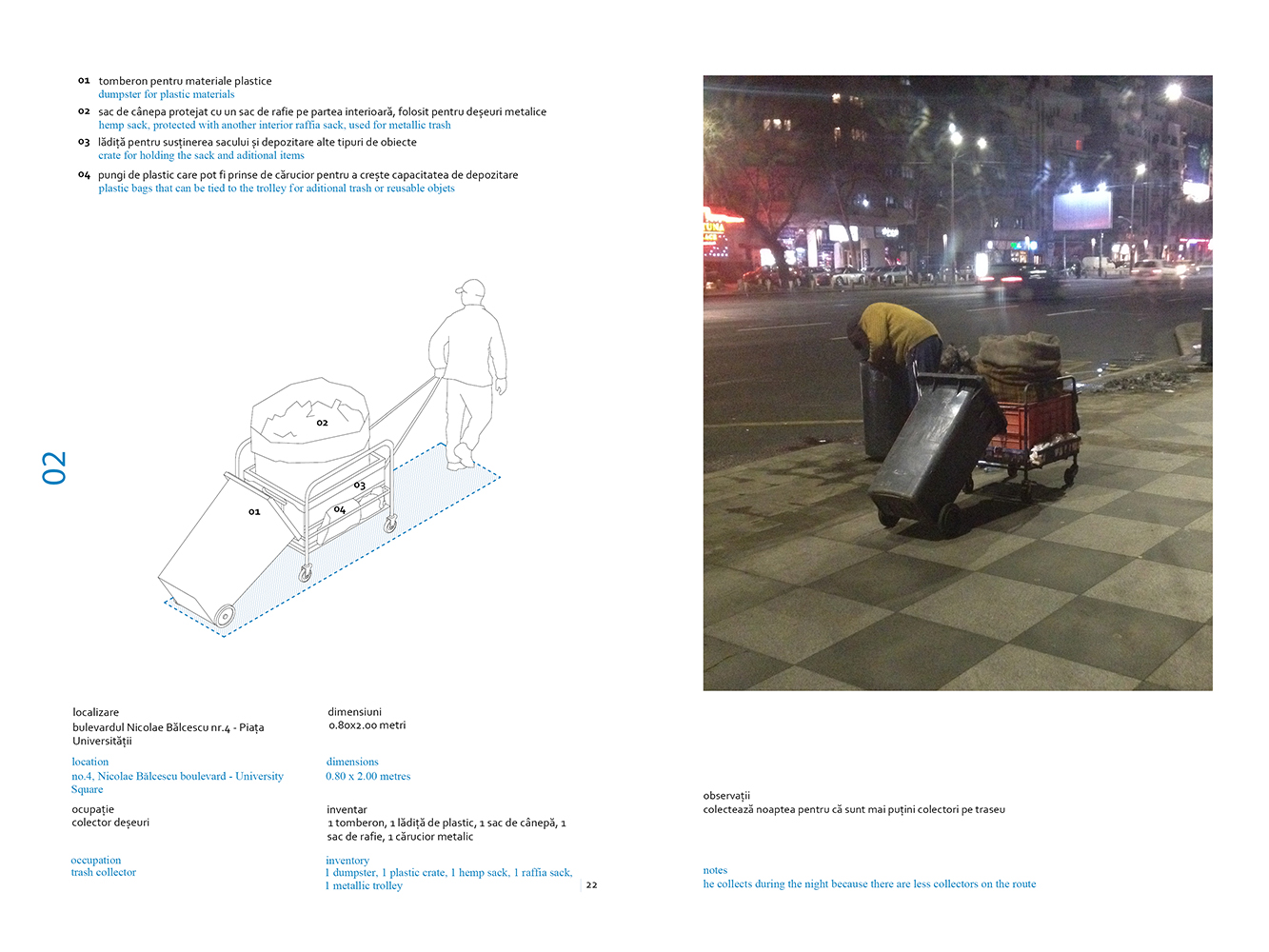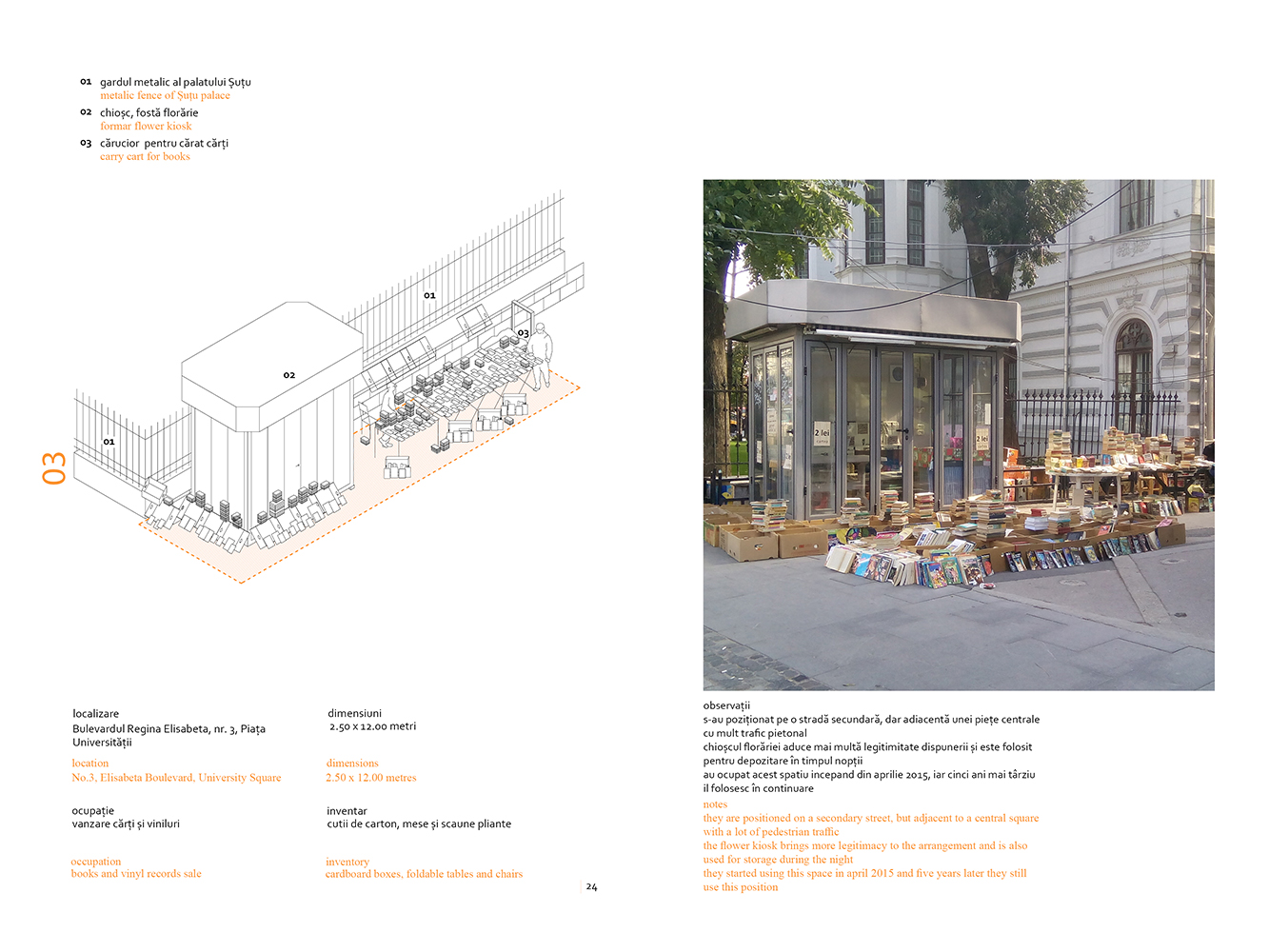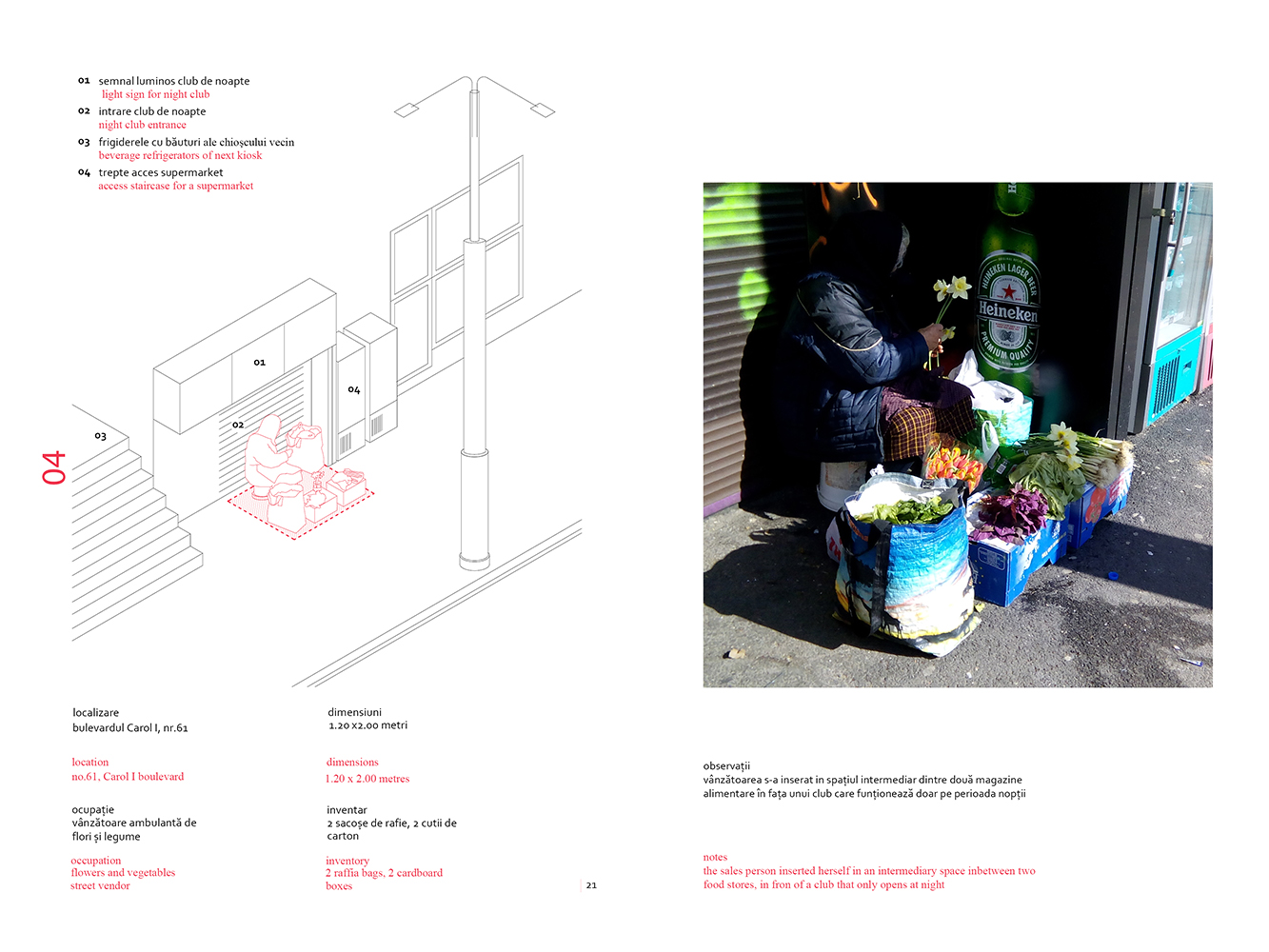Bucharest Dossier – Instances of living and exchange
Poverty describes a series of resilient practices that can be developed as alternative models of living and exchange. They are examples of ad-hoc solidary and equitable networks of mutual interest.
The collections of situations found on the street are organized through five recurrent practices – trash collecting, street commerce, book trading, rough sleeping, car parking. We were curious to find out what people without income, shelter or a proper ID card do in order to acquire the minimum necessary to survive. We intend to focus on the practices of such people that, despite having an important presence in the city, remain invisible in public space due to lack of representation.
These practices come as a self-formulated reaction to the usual production of the city. Clustered in parallel networks of discriminated social groups that try to survive by creating and recreating a particular living environment inside the city. Using the existing physical infrastructure, they develop parasite-situations that occupy or use leftover spaces and amenities. The new situations insert themselves in a tolerant intermediary space, where fiscal and spatial monopole is the week, finding the circumstances needed for continuing their existence. Although marginal and poorly tolerated, these resilient practices permanently adapt to the crisis, finding new ways to survive and improve, remaining a constant presence in Bucharest’s public space.
* Bucharest Dossier gathers, studies and formulates street life instances as found in the present city.
Phase: Ongoing research
Location: Bucharest, Romania
Date
January 2016






